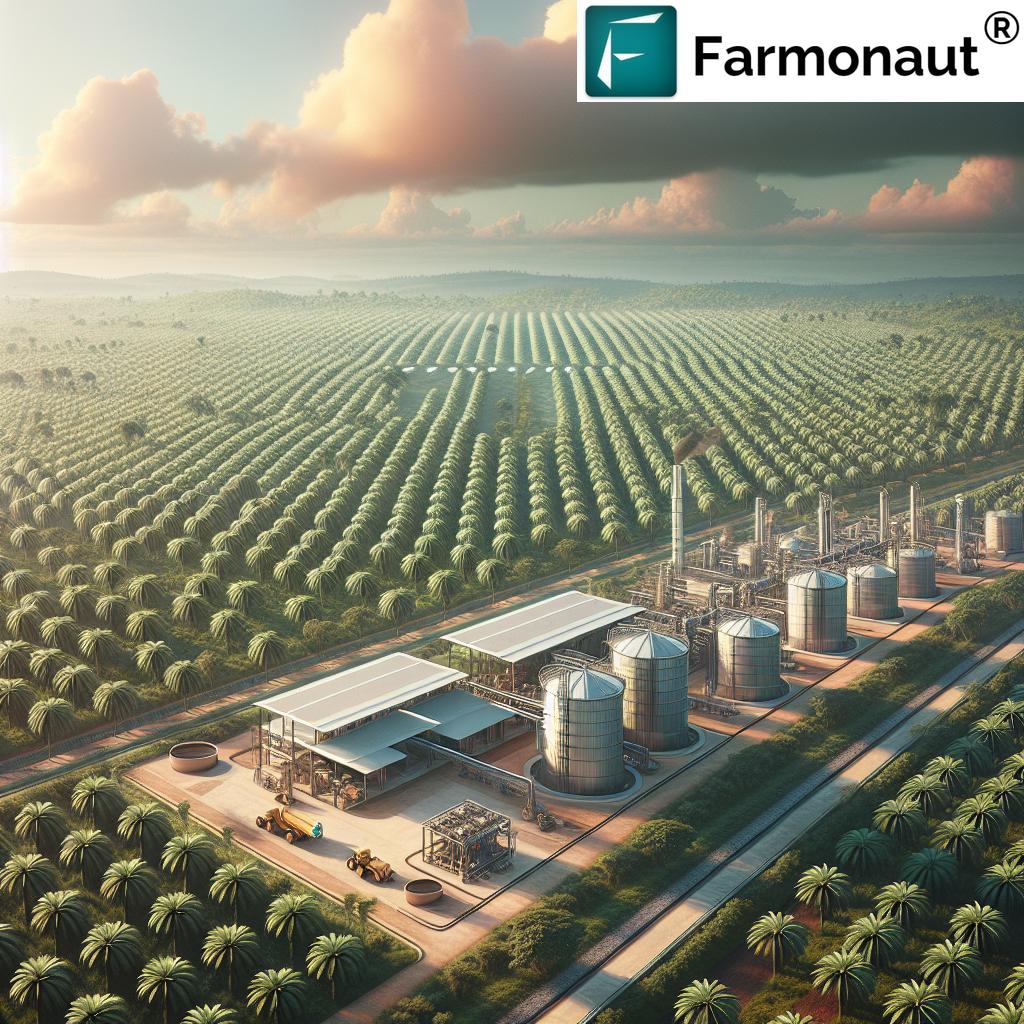Morocco Minimum Wage Increase 2024: Historic Boost for Workers
“Morocco’s 2024 minimum wage hike marks a 10% increase, impacting over 2 million agricultural and private sector workers.”
Introduction: Morocco Minimum Wage Increase 2024
As we step into 2024, the Moroccan government has enacted a historic reform that puts workers, especially those in agriculture and the private sector, at the forefront of economic progress and inclusion. The Morocco minimum wage increase is the largest in history, with a remarkable 20% hike in the private sector and significant steps toward harmonizing agricultural workers’ wages Morocco. This sweeping change is not just about numbers; it’s about bolstering livelihoods, strengthening the National Social Security Fund Morocco, and setting a new benchmark for labor protections in North Africa.
We’re witnessing a convergence of landmark wage reforms, pension enhancements, and additional relief measures, all designed to foster security and dignity for millions of Moroccan workers. As a leading agri-technology company, we at Farmonaut recognize how pivotal these industry trends are for our users—individual farmers, agribusinesses, corporate sector clients, and government policy-makers. In this blog, we’ll give you an in-depth look at 2024’s minimum wage Morocco advances, the role of technology-driven agricultural growth, and how Farmonaut supports farmers in this new landscape.
Why This Wage Hike Matters
- Largest hike ever by a Moroccan government: 20% for private sector, proportional increases for agriculture.
- Boosting monthly minimum wage: From MAD 2,638.05 (~$263) in 2021 to MAD 3,191.85 (~$319) in 2024 (Mad 3191.85 monthly wage).
- More than 2 million workers will benefit: Data from the National Social Security Fund Morocco confirms extensive coverage.
- First steps towards unified minimum wage: Government targets 2028 for sector parity, especially for agricultural wage growth.
A Historic Boost: Government Announcement and Key Figures
In Rabat, during the annual May Day celebrations, Economic Inclusion Minister Younes Sekkouri unveiled the bold new vision of economic inclusion Morocco—not just by increasing the national minimum wage, but also by closing wage disparity between agricultural workers and the rest of the private sector.
The Numbers: The minimum wage in Morocco has jumped to MAD 3,191.85 monthly, following a previous value of MAD 2,638.05. An additional 5% increment is set for January, ensuring continued wage growth momentum.
As stated by Minister Sekkouri, “The minimum wage will increase by nearly MAD 600 ($60), a 20% rise that no previous government has ever achieved.” This represents a milestone not only for wages, but also for our country’s leadership in social protection and workplace justice.
Alongside these headline numbers, the reforms also encompass key advances in pension systems, social security, and taxation—each providing crucial benefits for Moroccan families. We’ll examine each domain in detail.
“Pension benefits in Morocco are set to rise alongside the minimum wage, benefiting thousands of retiring workers in 2024.”
Comparative Minimum Wage Table: Before and After
| Sector | Minimum Wage Before 2024 (MAD) | Minimum Wage After 2024 (MAD) | Percentage Increase (%) | Estimated Beneficiaries |
|---|---|---|---|---|
| Agriculture | 1,860 | 2,360 (by 2026) | 26% | ~800,000 |
| Private Sector (Non-Agriculture) | 2,638.05 | 3,191.85 | 21% | ~1,200,000 |
| Public Sector | Set by decree; varies by occupation | Incremental increases ongoing | N/A | Variable |
| Pensioners (Private Sector, eligible) | Based on 3,240 days (10 years) of contributions | Now requires only 1,320 days (4 years) of contributions | Benefit eligibility +100% increase | Thousands (private sector retirees) |
Closing the Gap: Agricultural Workers’ Wages in Morocco
In the past, agricultural workers’ wages Morocco lagged behind their private and public sector peers. Recognizing the central role of agriculture in the national economy, the Moroccan government prioritizes bridging this gap by:
- Raising monthly minimum wage in agriculture from MAD 1,860 to MAD 2,360 by April 2026.
- Scheduling two 5% increments for agricultural minimum wage between 2025 and 2026, outpacing non-agricultural wage growth in percentage terms.
- Ensuring unification of minimum wage between all sectors by 2028, a major breakthrough in wage equality.
This phased approach not only gives agricultural workers immediate relief, but also sets a trajectory for sector-wide parity—a crucial step in sustainable economic and social development.
For farmers who manage large acreages or seek to maximize return on their labor and investments, technology is increasingly vital. Tools like Farmonaut’s large-scale farm management solution offer real-time monitoring and advisory, empowering both employers and workers by optimizing productivity across agricultural activities. For large farms, this means more efficient labor allocation and performance tracking—a significant advantage, especially as wage standards rise.
Private Sector Wage Reform and Economic Inclusion Morocco
The private sector wage reform affects over a million workers, with sweeping results for families across Morocco. By raising salaries to MAD 3,191.85 monthly wage, and by ensuring gradual, predictable increases, the government builds both economic stability and long-term inclusivity.
- National Social Security Fund Morocco: Now guarantees coverage for a broader pool of contributors, thanks to the higher wage floor.
- Income Security: With nearly MAD 600 ($60) added per month, private workers can better meet household needs, plan for the future, and invest in health and education.
- Government Recognition of Social Partnership: The Moroccan government wage agreement was reached through multi-stakeholder consultation, achieving broad support from employers, workers, and labor organizations.
Importantly, this wage increase is not isolated. It comes at a time when other economic reform measures—from social benefits to income tax cuts—are all working in synergy for the advancement of Moroccan society.
For private enterprises—especially those in agriculture—managing wage growth, compliance, and resource allocation becomes even more crucial. That’s why leveraging smart fleet management solutions can help agribusinesses optimize operations, cut costs, and meet new wage compliance standards efficiently. Fleet management goes beyond vehicles: it includes machinery, labor planning, and logistics—pillars that support wage policy implementation.
Morocco Pension Reform: Retirement Benefits Strengthened
One of the most groundbreaking elements of the wage reform package is Morocco’s pension overhaul for private sector workers. Previously, workers needed at least 3,240 days (roughly 10 years) of contributions to qualify for a pension through the National Social Security Fund Morocco.
- Now, eligibility requires only 1,320 days (4 years): Drastic improvement, making retirement benefits accessible to a greater number of workers.
- Recover Your Employer’s Contributions: Workers falling short of the minimum contribution period can now reclaim sums from both themselves and their employer(s).
- Smoother transitions and dignity in retirement: This measure ensures that the most vulnerable—seasonal, intermittent, and agricultural workers—aren’t left behind due to workforce mobility or gaps in employment.
In parallel, Morocco pension reform means that retirement is no longer a privilege reserved for those in long-term, uninterrupted employment. This move delivers justice for women and younger workers, whose careers may be marked by breaks due to family or education.
For farmers interested in ensuring transparency and accountability in labor practices—especially as the government modernizes social insurance—digital traceability plays a vital role. Farmonaut’s blockchain-based traceability solutions offer powerful tools for proving compliance, tracking wage payments, and combating labor fraud in supply chains. This strengthens not only trust but also facilitates easier audits for pension and social security contribution requirements.
More Economic Relief: Tax Reduction and Legal Reforms
Continuing its proactive agenda, the government has instituted several additional economic relief measures coinciding with the 2024 minimum wage Morocco update:
- Income Tax Reduction Morocco: Starting January 2025, a targeted tax cut, negotiated at the behest of labor and social partners, delivers an average of MAD 400 (~$40) in additional take-home pay for middle-income families. For our stakeholders, this tax reduction underpins family well-being and helps maintain consumer purchasing power amid rising costs.
- Draft Strike Law: The government demonstrated political courage by tackling this complex issue. The draft law harmonizes stakeholder proposals and aligns with international standards, all while upholding workers’ right to organize.
Social partners and employers are now better equipped to adapt, with more predictable labor costs and stronger incentives to register workers fully with the National Social Security Fund Morocco. For agribusinesses, integrating Farmonaut’s carbon footprinting tools can deliver additional value by helping comply with future sustainability requirements, which are increasingly linked to wage and social security standards for export markets.
Technology, Agriculture, and Farmonaut’s Transformative Role
No wage reform exists in a vacuum. The impact of Morocco minimum wage increase on farm output, labor allocation, and workplace empowerment depends equally on the spread of innovation and data-driven solutions. That’s why, at Farmonaut, we deliver advanced satellite-based farm management technology that supports modern agricultural operations under evolving economic conditions.
How Farmonaut Empowers Farms Amid Wage Reform
- Satellite-Based Crop Monitoring: We provide real-time crop health, soil moisture, and growth analytics using affordable satellite imagery—delivering the insights needed to keep costs in check while paying higher wages.
- Personalized AI Advisory with Jeevn: Our Jeevn AI system offers real-time, adaptive recommendations for fertilization, pest control, and irrigation, ensuring that every input (including labor) is used efficiently and profitably.
- Blockchain Traceability: Whether you’re a cooperative or agri-food company, our secure traceability ensures every product’s labor and agricultural journey is transparent and audit-ready, supporting compliance with minimum wage, pension, and safety standards.
Our platform is designed for cost-effective precision agriculture—no expensive on-field devices, just actionable intelligence via our web portal, mobile apps, or API. Combined with the government’s reforms, this model supports Morocco’s ambition to be both an agricultural leader and an inclusive, high-wage economy.
Looking to maximize farm sustainability and meet new economic and environmental targets? Farmonaut’s carbon footprinting platform delivers the emissions data you need to align with both Moroccan law and international buyers’ requirements. This is especially crucial as future wage and social protections become tied to green compliance in global trade.
Farmonaut Platform: API, Mobile Apps, and Advanced Solutions
As wage and pension reforms transform Morocco’s farming ecosystem, our technology empowers users across the value chain. Here’s how farmers, agribusinesses, and cooperatives can leverage Farmonaut:
- Web & Mobile Apps: Access comprehensive crop reports, labor performance analytics, and satellite imagery from anywhere with the Farmonaut app. Our apps are optimized for all devices and are available on Android and iOS for on-field convenience.
- Farmonaut API: For agri-businesses, financial institutions, and research entities, the Farmonaut Satellite & Weather Data API supplies the data needed for compliance checks (e.g., crop reports for wage audits, insurance risk analysis). Full API documentation is available for seamless integration.
- Financing Tools: Lending and insurance providers can deploy Farmonaut’s crop loan and insurance verification tools to verify farm size, crop health, and compliance with wage and pension contribution records—reducing fraud and supporting economic inclusion.
- Advisory Solutions: For plantation and forest management activities, our crop and forest advisory system harnesses satellite and AI data to optimize operations amidst evolving wage structures and labor law requirements.
Across Morocco’s agricultural landscape, thoughtful adoption of these solutions means that every dirham invested in wages, social security, and retirement benefits goes further. This is the intersection of economic policy and next-generation farm management.
Frequently Asked Questions (FAQ): Morocco Minimum Wage Increase 2024
What is the new minimum wage in Morocco as of 2024?
From 2024, the national minimum wage in Morocco’s private sector has increased from MAD 2,638.05 (~$263) to MAD 3,191.85 (~$319), with further increments scheduled for the coming year. For agriculture, it rises from MAD 1,860 (~$186) to MAD 2,360 (~$236) by 2026.
How many workers will benefit from the Morocco minimum wage increase?
Over 2 million Moroccan workers—800,000 in agriculture and approximately 1.2 million in private sector activities—stand to benefit directly from this wage agreement, according to the National Social Security Fund Morocco.
Will agricultural workers receive the same minimum wage as other sectors?
By 2028, the government aims to unify the minimum wage across all sectors, with agricultural wage increments accelerating more quickly in the interim to close the existing gap.
What are the major changes in Morocco pension reform?
The required number of contribution days for private sector retirement benefits has been reduced from 3,240 (10 years) to 1,320 (4 years). Workers who do not qualify for a pension can now reclaim both their own and their employer’s contributions.
What relief measures accompany the 2024 wage reform?
There’s an average MAD 400 (~$40) reduction in income tax for middle-income families from January 2025, and new laws further secure workplace rights and social protections.
How does technology support farms given these wage and pension reforms?
Using advanced solutions like Farmonaut’s satellite-based monitoring, AI advisory, and traceability, farms can optimize input and labor use, remain compliant with new wage laws, and demonstrate best practices to buyers and regulators.
Where can I access Farmonaut’s solutions?
You can monitor your farm from anywhere using Farmonaut’s web and mobile platforms. For automated data and integration, explore the Farmonaut API.
Are Farmonaut’s tools suitable for small and medium-sized Moroccan farms?
Absolutely. Farmonaut is designed to make precision agriculture affordable and accessible at every scale, supporting smallholders and large agribusinesses equally. The platform is modular and scalable.
Does Farmonaut provide labor or wage mediation services?
No. Farmonaut is a technology platform; we do not provide wage mediation, labor brokering, or regulatory services.
How can I get more information on Farmonaut’s pricing?
Please refer to the subscription/pricing table above or visit our platform for details tailored to your farm size and operational needs.
Conclusion
The Morocco minimum wage increase of 2024 stands as a beacon for economic justice in North Africa. Through this comprehensive government reform, millions—especially those in agriculture and the private sector—see uplifted monthly wages, faster access to pension benefits, and greater protection against economic and social risk. For Moroccan society, these strides represent more than headline news; they are foundational to future prosperity and inclusion.
As wage parity moves closer to reality and as the Moroccan economy adapts to new global standards, innovative solutions in agriculture technology become indispensable. Farmonaut is proud to support this transition with scalable, earth-friendly, and cost-effective digital services, helping ensure that every farm—large or small—can thrive in a new era of social and economic progress.
To join Morocco’s agricultural future, download the Farmonaut app or learn more about our API and integration solutions today.






















